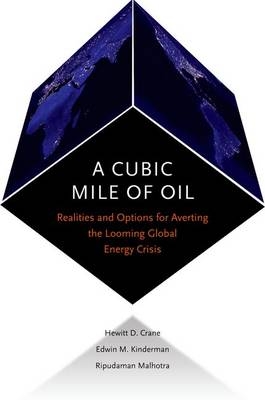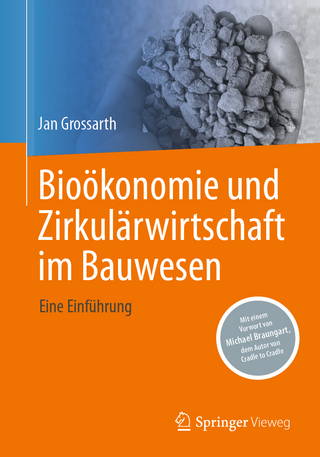
A Cubic Mile of Oil
Oxford University Press Inc (Verlag)
978-0-19-532554-6 (ISBN)
One cubic mile of oil (CMO) corresponds very closely to the world's current total annual consumption of crude oil. The world's total annual energy consumption - from all energy sources- is currently 3.0 CMO. By the middle of this century the world will need between 6 and 9 CMO of energy per year to provide for its citizens. Adequate energy is needed remove the scourge of poverty and provide food, clothing, and shelter for the people around the world, and more will be needed for measures to mitigate the potential effects of climate change such as building dikes and desalinating water.
A Cubic Mile of Oil describes the various energy sources and how we use them, projects their future contributions, and delineates what it would take to develop them to annually produce a CMO from each of them. The requirement for additional energy in the future is so daunting that we will need to use all resources. We also examine how improved efficiency and conservation measures can reduce future demand substantially, and help distinguish approaches that make a significant impact as opposed to merely making us feel good.
Use of CMO eliminates a multitude of units like tons of coal, gallons of oil, and cubic feet of gas; obviates the need for mind-numbing multipliers such as billions, trillions, and quadrillions; and replaces them with an easy-to-understand volumetric unit. It evokes a visceral response and allows experts, policy makers and the general public alike to form a mental picture of the magnitude of the challenge we face. In the absence of an appreciation of the scale of the problem, we risk squandering efforts and resources in pursuing options that will not meet tomorrow's global energy needs. We must make critical choices, and a common understandable language is essential for a sustained meaningful dialog.
Hewitt Crane was one of SRI's visionaries, combining several disciplines in his multilevel career. He is considered to be SRI's first bioengineer and one of SRI's most prolific inventors. Prior to SRI Hew worked with John Von Neumann at the Institute for Advanced Study in Princeton. He was also co-founder of the highly acclaimed Ridge winery. Edwin Kinderman has spent over 50 years actively conducting and/or managing research, development and evaluation activities dealing with the development and implementation of energy technology and the individual markets these technologies address. His latest effort has been an attempt to correlate these experiences into the overall evaluations discussed in this book. Ripudaman Malhotra is an organic chemist and associate director of the Physical Sciences Division at SRI International, a nonprofit scientific research institute. He has worked extensively in the area of energy, particularly in the study of fossil fuels. His detailed studies have resulted in innovative processes and increased efficiency. His research interests currently focus on studying alternate resources such as biomass and the application of biotechnology in the areas of energy, chemicals, and the environment.
ENERGY USE; ENERGY RESOURCES; THE PATH FORWARD
| Erscheint lt. Verlag | 5.8.2010 |
|---|---|
| Zusatzinfo | 25 halftones |
| Verlagsort | New York |
| Sprache | englisch |
| Maße | 155 x 236 mm |
| Gewicht | 590 g |
| Themenwelt | Naturwissenschaften ► Biologie ► Ökologie / Naturschutz |
| Naturwissenschaften ► Chemie | |
| Technik ► Elektrotechnik / Energietechnik | |
| Technik ► Umwelttechnik / Biotechnologie | |
| ISBN-10 | 0-19-532554-0 / 0195325540 |
| ISBN-13 | 978-0-19-532554-6 / 9780195325546 |
| Zustand | Neuware |
| Haben Sie eine Frage zum Produkt? |
aus dem Bereich


